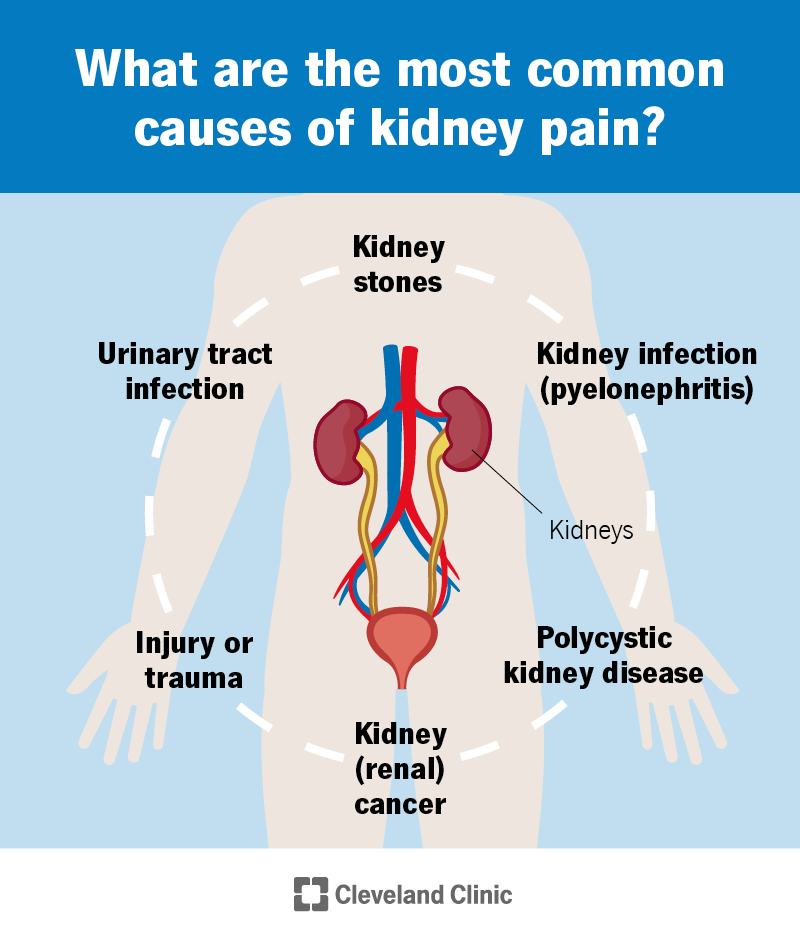Kidney Stones vs UTI: Professional Insights on Effects, Analysis, and Management
Kidney Stones vs UTI: Professional Insights on Effects, Analysis, and Management
Blog Article
Discovering the Symptoms and Causes of Kidney Stones in Contrast to Urinary Tract Infections: A Thorough Guide
The exploration of kidney stones and urinary system system infections (UTIs) reveals an intricate interplay of signs and underlying reasons that require mindful examination. While both problems can result in hematuria, they offer distinct scientific attributes and arise from various etiological variables. Understanding the nuances of each problem is crucial for efficient diagnosis and monitoring. What are the key differences in their signs and symptoms, and exactly how might these notify therapy strategies? The responses to these inquiries might give vital insights into the avoidance and treatment of these usual urological concerns.
Overview of Kidney Stones
Kidney stones, also known as renal calculi, form when certain substances in the urine crystallize and accumulation, leading to the development of hard down payments within the kidneys. These rocks can differ in dimension, varying from a grain of sand to a golf sphere, and can be composed of different materials, the most common being calcium oxalate, uric acid, struvite, and cystine. The formation of kidney rocks is affected by a number of aspects, including dietary behaviors, liquid consumption, and genetic predisposition.
Signs and symptoms of kidney stones might include extreme discomfort in the back or side, blood in the pee, nausea, and frequent urination, particularly as the rock moves through the urinary tract. Medical diagnosis generally involves imaging researches such as ultrasound or CT scans, along with urinalysis to identify the stone's make-up.
Therapy options differ based upon the size and kind of rock, as well as the severity of signs and symptoms (Kidney Stones vs UTI). Little stones might pass normally with enhanced liquid intake, while larger rocks may call for medical treatments such as lithotripsy or medical removal. Recognizing the pathophysiology and danger factors linked with kidney stones is essential for reliable prevention and monitoring
Summary of Urinary System Tract Infections
Urinary system infections (UTIs) are usual bacterial infections that affect any type of component of the urinary system, consisting of the kidneys, ureters, bladder, and urethra. They primarily happen when microorganisms, often from the intestinal tract, get in the urinary system, leading to swelling and infection.
The prevalence of UTIs is significantly higher in ladies than guys, largely due to anatomical differences, such as a shorter urethra. Danger variables include sexual activity, particular contraceptive methods, urinary system retention, and dehydration. The medical diagnosis of UTIs is typically validated through urine tests, which may expose the existence of germs, leukocyte, or red cell.

Signs And Symptoms of Kidney Stones
The discomfort connected with kidney stones can manifest in numerous means, commonly leading people to seek medical attention. Among one of the most typical symptoms is severe discomfort, normally localized in the lower back or side, which may emit to the abdomen or groin. This pain, often defined as sharp or cramping, can happen all of a sudden and may fluctuate in strength.
Furthermore, individuals might experience hematuria, or blood in the urine, which can vary from microscopic total up to noticeable discoloration. This symptom might be gone along with by changes in urinary system practices, such as increased regularity or urgency, along with pain during peeing. Queasiness and vomiting are likewise prevalent, usually resulting from the body's reaction to intense discomfort.
Sometimes, people may experience high temperature and chills, especially if a second infection establishes as a result of the obstruction triggered by the rocks. Overall, the combination of extreme pain, hematuria, altered urinary system patterns, and stomach signs can give significant insight into the visibility of kidney rocks, warranting timely clinical analysis and intervention. Comprehending these signs is crucial for timely diagnosis and efficient monitoring of the problem.
Symptoms of Urinary Tract Infections
Infections within the urinary tract commonly offer a series of distinctive symptoms that can considerably affect life. One More Help of the most usual symptoms consist of a persistent urge to urinate, frequently gone along with by a burning feeling during urination, understood as dysuria. Individuals may also experience enhanced frequency of urination, producing small amounts of urine each time.
Various other remarkable signs and symptoms consist of fetid or over cast urine, which may suggest the presence of bacteria or pus. Sometimes, pee might show up red or pink because of the presence of blood, a condition known as hematuria. In addition, people may experience pelvic discomfort or stress, which can better aggravate the sensation of seriousness.
Systemic symptoms may additionally materialize, such as fever, cools, and exhaustion, particularly if the infection has risen to the kidneys. It is important to acknowledge these signs early, as neglected urinary system tract infections can cause extra serious difficulties. Kidney Stones vs UTI. Motivate medical attention is recommended when these symptoms are observed, permitting for appropriate diagnostic examination and treatment to alleviate pain and avoid further health concerns
Root Causes Of Each Condition
Often, kidney stones and urinary system tract infections develop from distinct yet occasionally overlapping causes that can influence individuals in different ways. Kidney stones commonly develop due navigate to these guys to metabolic aspects, dietary options, and hereditary predispositions. Raised levels of calcium, oxalate, or uric acid in the pee can lead to stone development. Dehydration, insufficient fluid consumption, and high-sodium diets can intensify these problems, promoting condensation within the urinary system tract.

Understanding these distinct reasons is crucial for prevention and therapy. Kidney Stones vs UTI. While way of living adjustments may reduce the risk of kidney rocks, ideal health and timely treatment of urinary system system infections are necessary for decreasing their recurrence and associated complications
Verdict
In recap, kidney stones and urinary system tract infections existing distinct signs and underlying causes. Kidney stones are identified by serious discomfort and metabolic elements, while urinary system tract infections mostly entail bacterial infections leading to urinary system urgency and discomfort.
The expedition of kidney stones and urinary system infections (UTIs) reveals a complicated interaction of symptoms and underlying causes that necessitate careful assessment.Urinary tract infections (UTIs) are typical microbial infections that influence any part of the urinary system, consisting of the kidneys, ureters, bladder, and urethra.Frequently, kidney stones and urinary system infections emerge from distinct yet occasionally overlapping reasons that can affect individuals in different ways.In summary, kidney rocks and urinary system tract infections existing distinct signs and symptoms and underlying reasons. Kidney stones are defined by serious discomfort and metabolic factors, while urinary tract infections mainly include microbial infections leading to urinary system necessity and discomfort.
Report this page